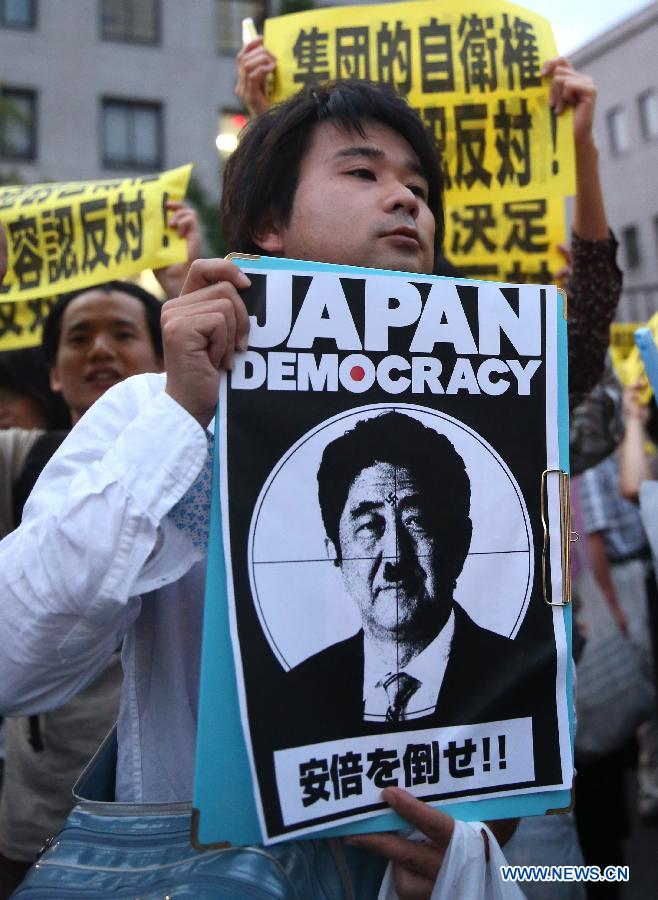Japanese protest against Abe on SDF
Updated: 2014-07-01 11:02
(Xinhua)
TOKYO -- Thousands of Japanese people on Monday gathered in front of Prime Minister Shinzo Abe's official residence, protesting against Abe and his attempt to allow Japan' s Self-Defense Forces (SDF) to exercise the rights to collective self-defense.
The large-scale rally, one of so many in recent days, came after a man who opposes the Japanese government's attempt to exercise the rights to collective self-defense setting himself on fire on a girder of a pedestrian bridge at the crowded Shinjuku railway station in downtown Tokyo on Sunday.
The protesters held banners and pasteboards which read"Tokyo against Fascism,""Article 9 rules. Speak up. Now or Never. Be true to the Article 9" and "absolutely oppose cabinet resolution, "shouting "do not destroy the pacifist Constitution"and "Step down, Abe!"through their megaphones.
The Japanese government sought to get a green light from the Cabinet on Tuesday for a resolution that will allow Japan to exercise collective self-defense rights through reinterpreting the country's pacifist Constitution.
Japan's current Constitution, famous for its war-renouncing Article 9, bans the SDF fighting outside Japan, but the collective defense right will drag Japan into war overseas.
Abe's move to reinterpret the constitution so as to exercise collective defense has been considered as a violation of legislative procedures. As for the prime minister, it is difficult to amend the Constitution without a referendum.
According to latest polls, 54 percent of respondents said no to reinterpretation of Japan's anti-war constitution, compared 29 percent who support the move.
Separate poll showed that support rate for Abe's Cabinet fell to 45 percent, the lowest since Abe took office in December 2012.
Related stories:
Analysts: Japan should follow up visit with action
